Prevention
Our innovative research program helps reveal how we can save lives and informs our bold Project 2025 goal of reducing the annual suicide rate in the U.S. 20% by 2025. At the same time, our volunteers advocate for mental health and suicide prevention laws that affect communities everywhere.
Our state-of-the-art research portfolio helps to address suicide, which is currently the 10th leading cause of death in the U.S. By working with other national research organizations and sharing the findings of our researchers through conferences and Research Connection Programs, we spread knowledge, and help to shape the agenda for future suicide prevention research.
AFSP was founded as a research organization dedicated to exploring how to save lives. Over 30 years later, AFSP remains the largest private funder of suicide prevention research, shaping suicide prevention strategies around the world in collaboration with our Scientific Council, Scientific Advisors, and research grantees.
This year, AFSP funded 26 new research grants, totaling over $6.27 million. Of the new grants funded this year, three Focus Grants explore a range of exciting areas of research, totaling almost $4 million.
Focus Grants
Focus Grants are targeted, novel and potentially high-impact studies focusing on designated areas of study. This year, AFSP has funded two new Blue Sky Focus Grants, and one Short-Term Risk Focus Grant.
Blue Sky Focus Grants are those which are open to all fields, supporting innovative and potentially impactful novel areas of suicide prevention research that are beyond the scope of our Innovation Grants.
Short-Term Risk Focus Grants are concentrated on assessment and/or interventions to identify and reduce short-term risk for suicide in clinical settings.
Opiate Suicide Study in Patients with Major Depression
Alan Schatzberg, M.D. of Stanford University was awarded a Blue Sky Focus Grant totaling over $1.4 million for a study on ketamine, a pain relief medicine that has been shown to rapidly reduce severe suicidal ideation. The study examines how we might sustain this anti-suicidal effect over time.
An Integrated Approach to Understanding the Biology of Suicidal Behavior
Virginia Willour, Ph.D. of the University of Iowa was awarded a Blue Sky Focus Grant totaling almost $1.5 million towards her research examining how genetics, and brain structure and function, are related to suicide through the study of individuals with bipolar disorder and suicidal behavior.
Inpatient Cognitive-Behavioral Therapy to Reduce Suicide Risk Post-Discharge
David Tolin, Ph.D. of the Institute of Living/Hartford Hospital was awarded a Short-Term Risk Focus Grant of over $1 million, studying the effects of Cognitive Behavioral Therapy on patients managing suicidal ideation and behavior post-discharge from the hospital, when they are at particularly high-risk.
See all of our Innovation GrantsBy organizing events like State Capitol Days and the Annual Advocacy Forum in Washington, D.C., we empower a network of volunteers across the country to urge public officials at all levels of government to prioritize suicide prevention and mental health.
It takes a community of people across the nation to educate federal, state and local leaders about suicide prevention and mental health. This year, thousands of our volunteers urged public officials at all levels of government to prioritize this important cause, sending over 30,000 emails to members of Congress and over 3,000 emails to state legislators.
Sign up to receive Action Alerts and to volunteer as an AFSP Field Advocate at afsp.org/advocate
State Capitol Days
Our chapters hosted 45 State Capitol Day events in Spring 2019, bringing our advocates together to meet with public officials and discuss how to help reduce suicide in their states and communities. This year, they urged legislators to support bills that would impact suicide prevention in K–12 schools, training for health professionals, mental health parity enforcement, prohibitions on conversion therapy, and suicide prevention planning and infrastructure at the state level, among other state priority issues.
Upcoming Capitol Days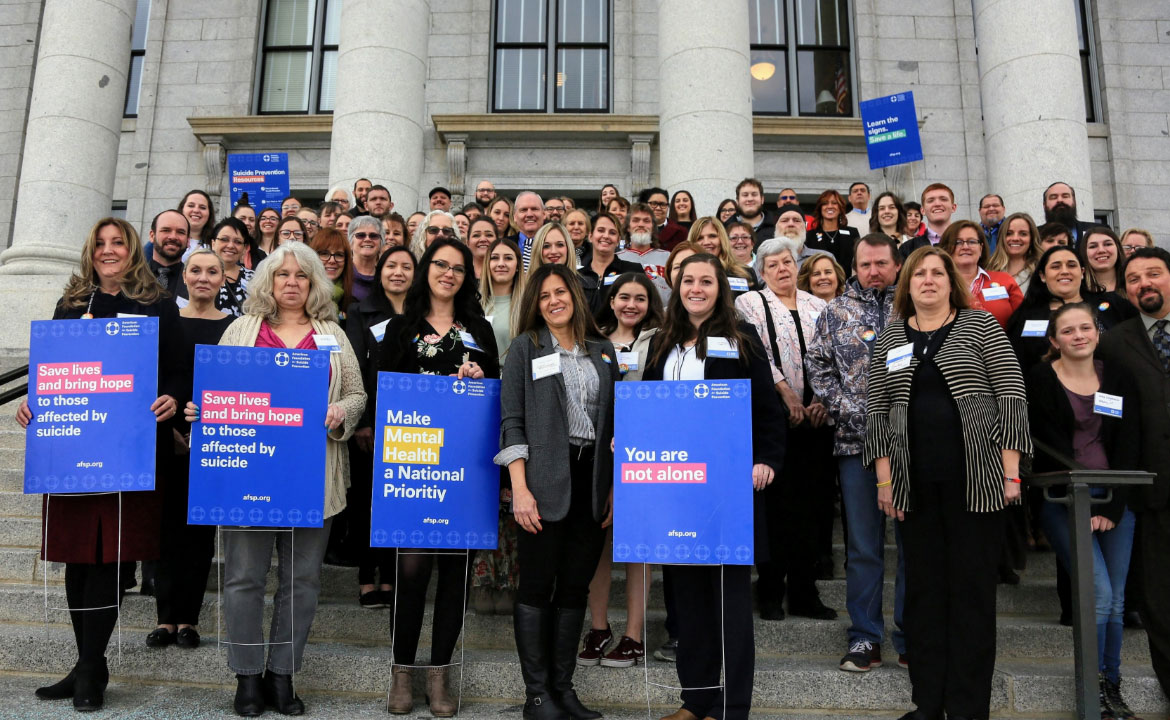
535
Congressional
offices
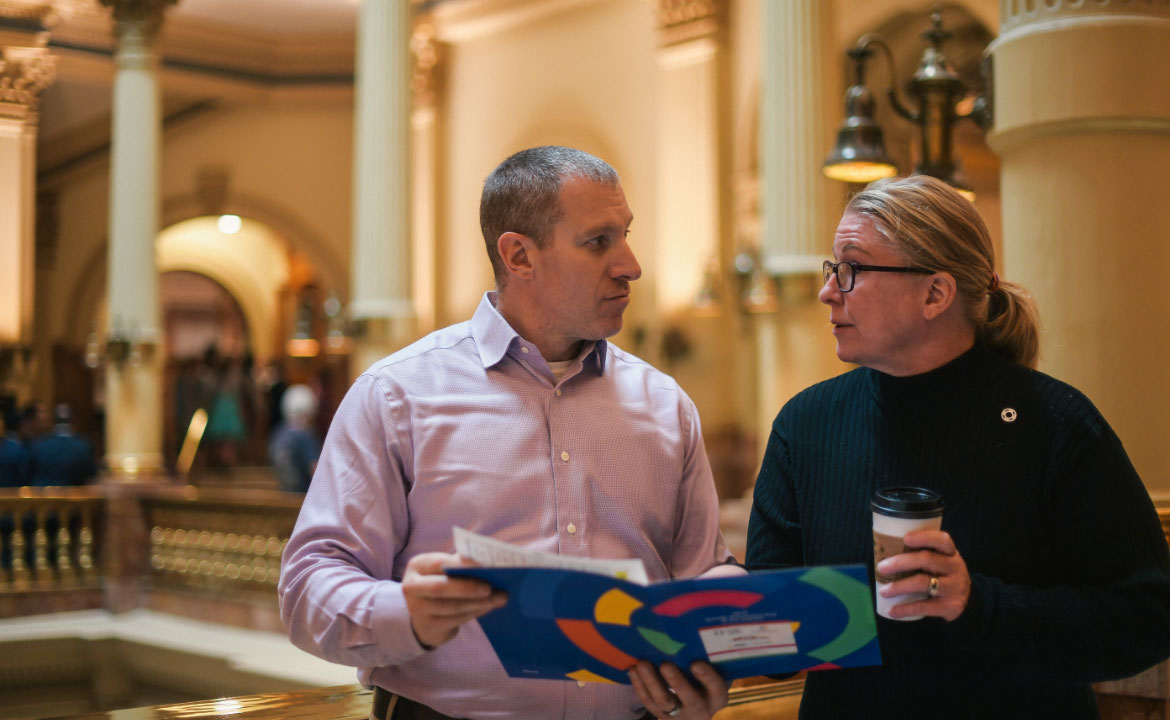
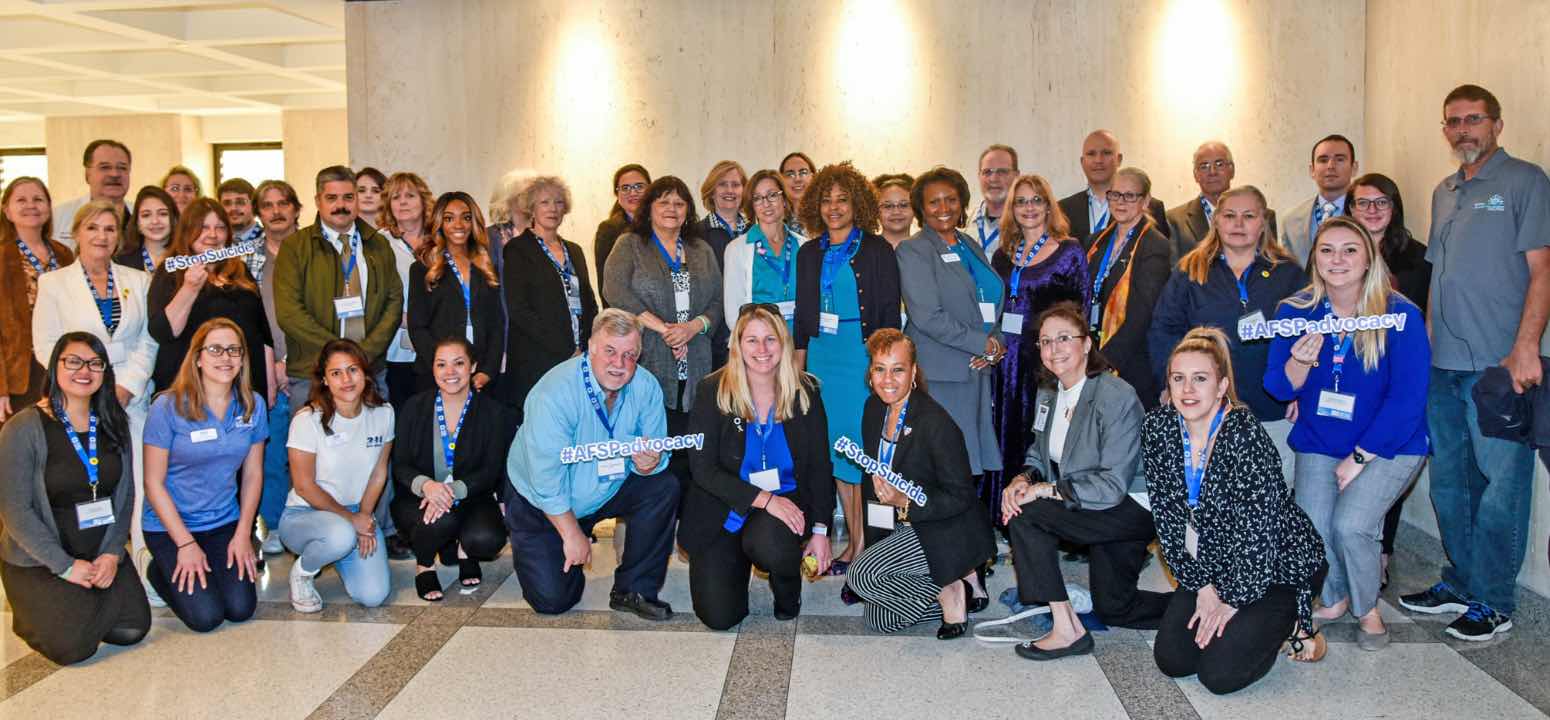

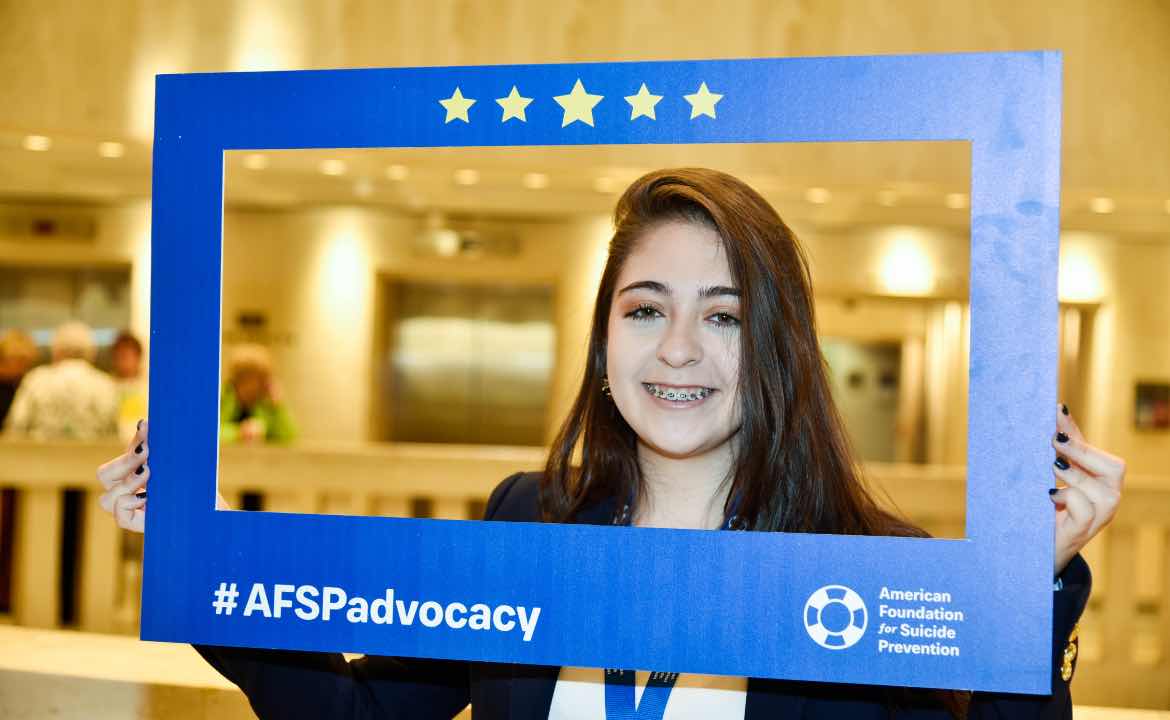
Advocacy Forum
At our 10th Annual Advocacy Forum, 225 Field Advocates, chapter leaders and staff assembled in Washington, D.C. to advocate for our federal policy priorities. Keynote speakers included U.S. Secretary of Veterans Affairs Robert Wilke, former U.S. Representative Patrick Kennedy, U.S. Representative Paul Tonko, and former U.S. Representative Charles Boustany.
About Advocacy Forum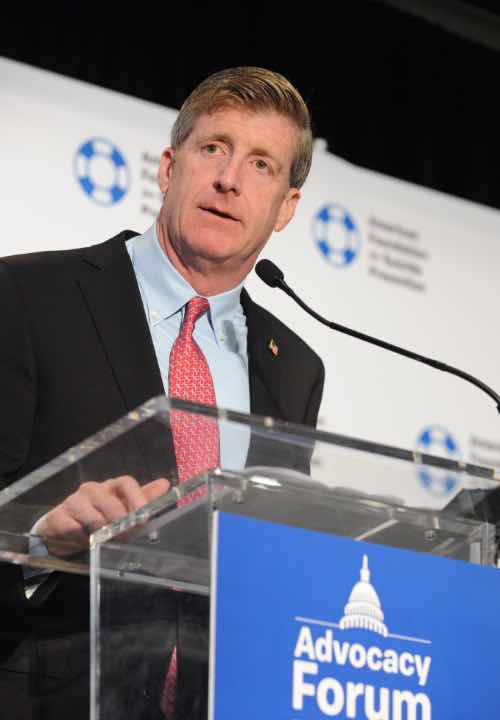
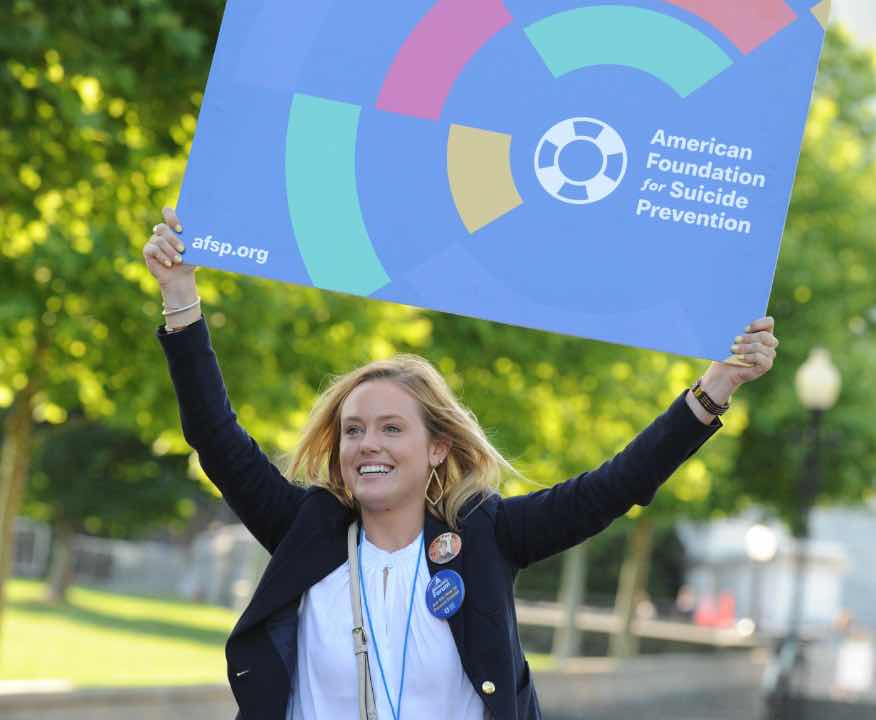

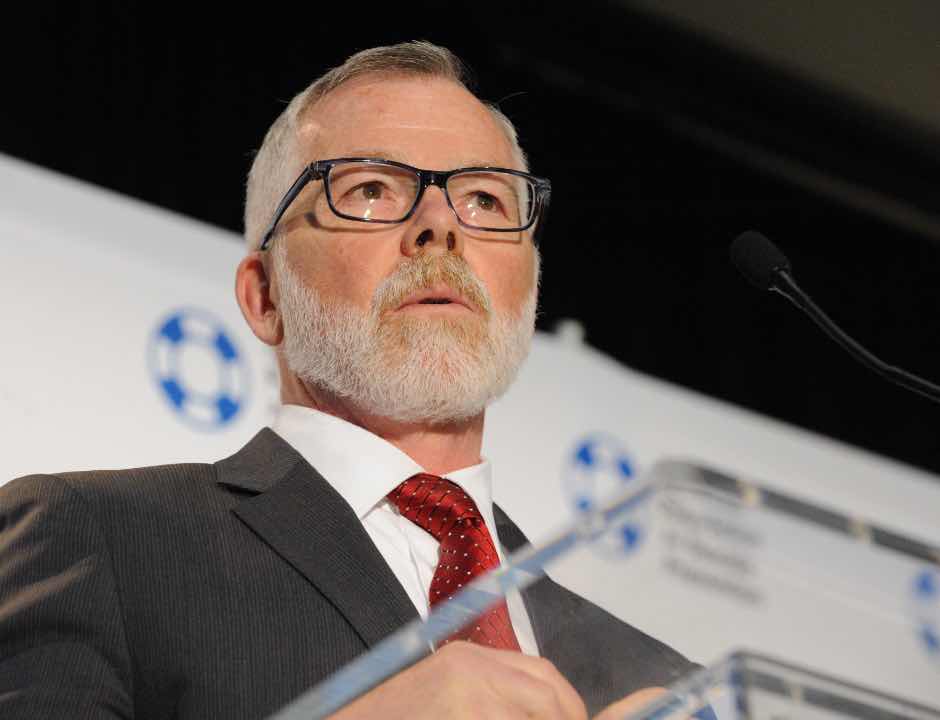
Our federal policy priorities:
- increased funding for the National Suicide Prevention Lifeline increased investment in suicide prevention research within the National Institute of Mental Health
- funding for suicide prevention education and programs at SAMHSA & CDC
- investment in mental health care for service members, veterans, and their families
- full enforcement of the Federal Mental Health Parity Law
- passage of legislation that supports suicide prevention and increased access to mental health and substance use disorder resources
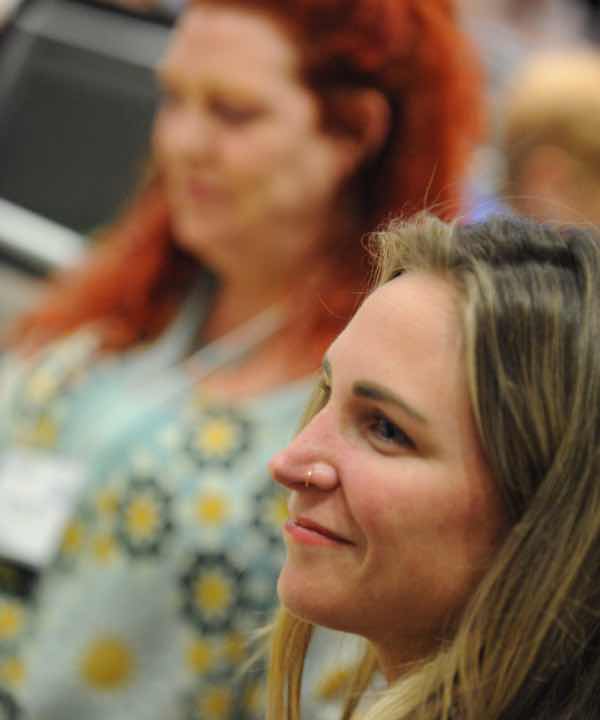
people joined
the Virtual
Forums
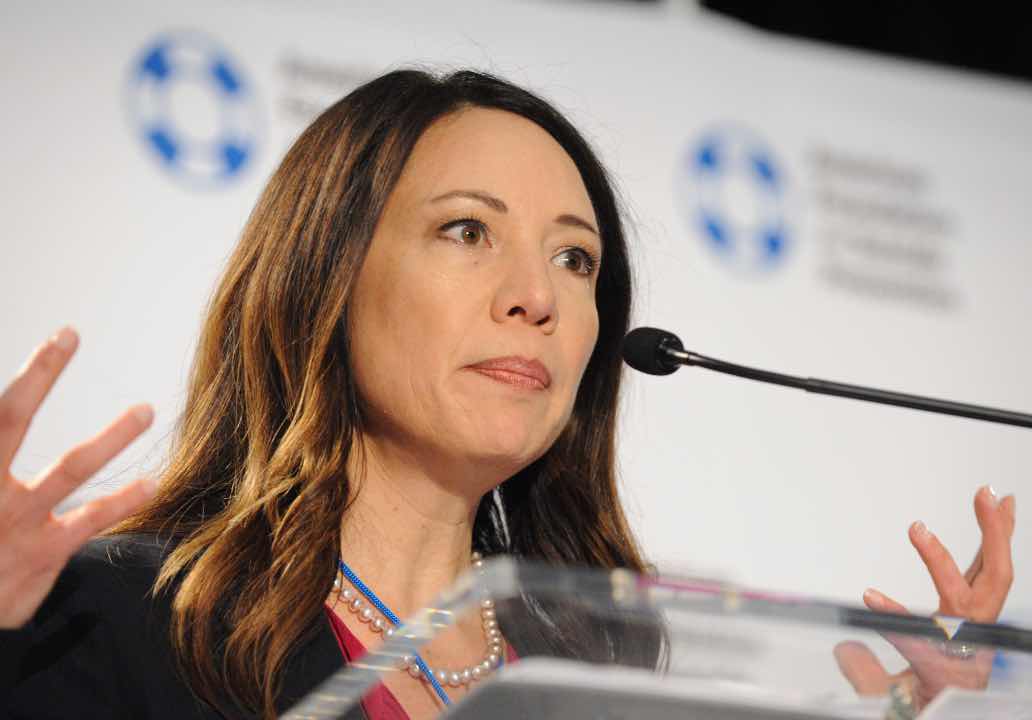
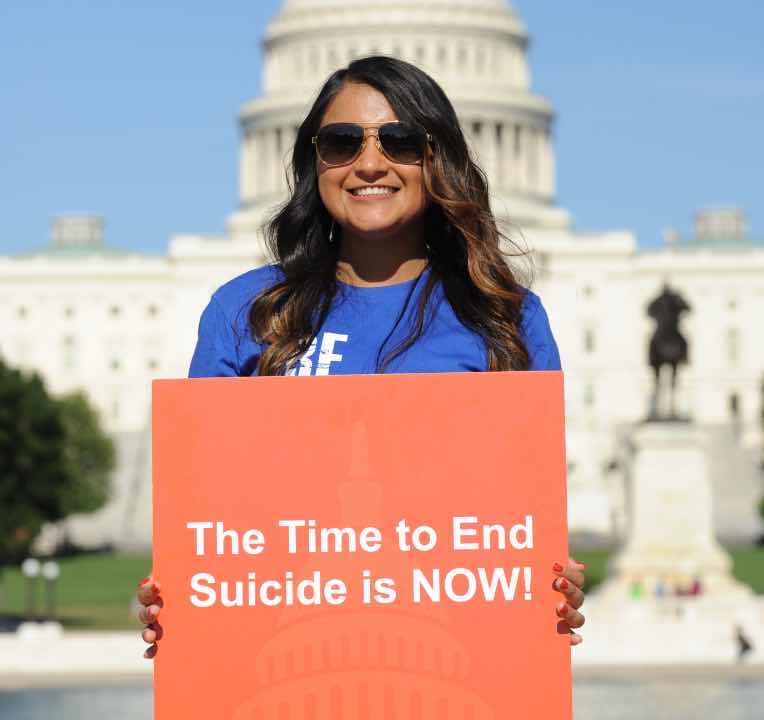

It is vitally important our elected officials make access to mental health care a major priority. With this in mind, this year we partnered with Mental Health for US — a nonpartisan, educational initiative focused on improving candidate’s and policymaker’s understanding and knowledge of mental health and making the topic a vibrant part of national policy conversations.
The partnership, co-chaired by former Senator Gordon Smith (R-OR) and former U.S. Representative Patrick J. Kennedy (D-RI), was launched at our Annual Advocacy Forum. Other coalition leaders in addition to AFSP include The Kennedy Forum, The Jed Foundation, National Alliance on Mental Illness, National Council for Behavioral Health, Mental Health America, One Mind, and Thomas Scattergood Behavioral Health Foundation.
Recognizing Our Field Advocates
The Sandy Martin Grassroots Award recognizes our volunteer Field Advocates who have devoted their time and energy working to build relationships with public officials, network with state and local agencies and organizations, recruit others to work for the cause, and further the public policy priorities we know will save lives
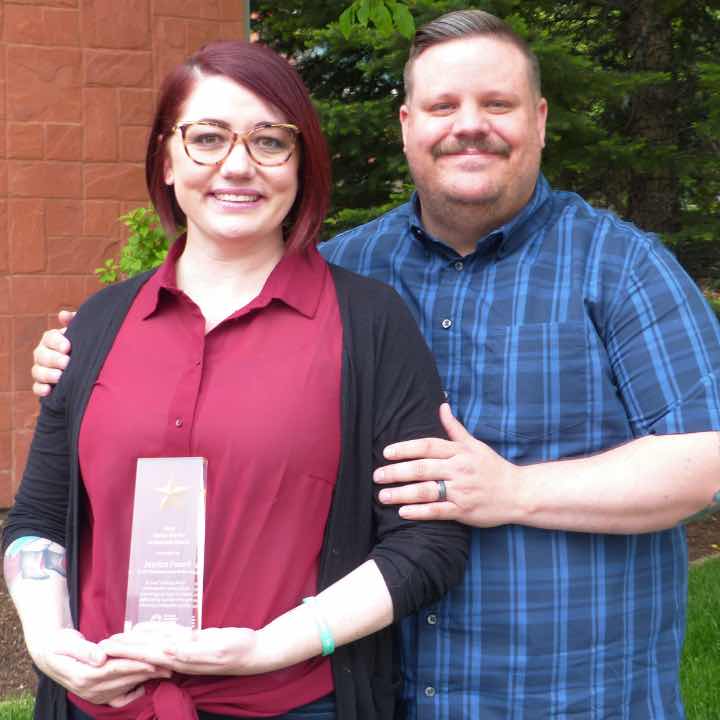
Jessica Foard,
AFSP Utah Chapter
Jessica Foard works tirelessly on suicide prevention in Utah, successfully advocating in her home state for increased mental health and suicide prevention services for all Utah residents. As a board member for the Utah Chapter, Jessica represented her chapter this year at both the Chapter Leadership Conference and the National Advocacy Forum in Washington, D.C., where she brought her passion for advocating locally to the national stage, meeting with members of Congress.
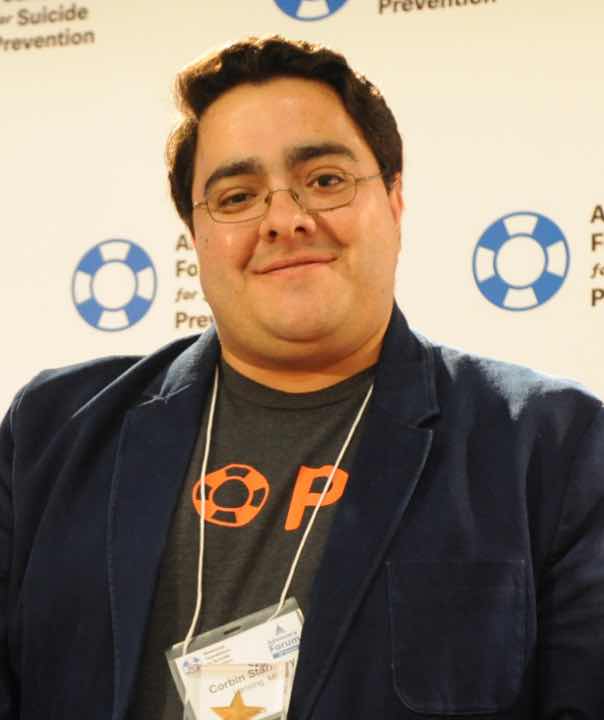
Corbin Standley,
AFSP Michigan Chapter
Currently serving as the Chapter Board Secretary for the AFSP Michigan Chapter, Corbin Standley is heavily involved in public policy efforts in his home state, helping to lead State Capitol Day events, preparing and providing testimony, and working directly with legislators to draft critical suicide prevention legislation. As a Ph.D. student studying youth suicide, Corbin traveled to Northern Ireland to present his master’s thesis research at the 30th World Congress of the International Association for Suicide Prevention.
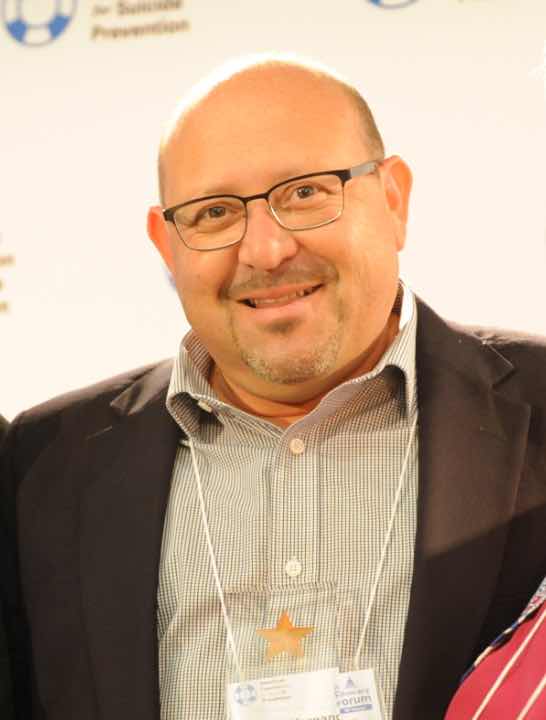
Che Hernandez,
AFSP San Diego Chapter
Che Hernandez is well known in his local community for his efforts regarding suicide prevention advocacy due to his strong leadership skills and drive to make a difference. As the San Diego Chapter’s chairman of the board of directors, he has served in almost every role within the chapter, including walk chair and Survivor Day organizer. He is a certified trainer of ASIST and safeTALK, and currently serves on the Behavioral Health Advisory Board for his county. Che is also a member of AFSP’s National Public Policy Council.
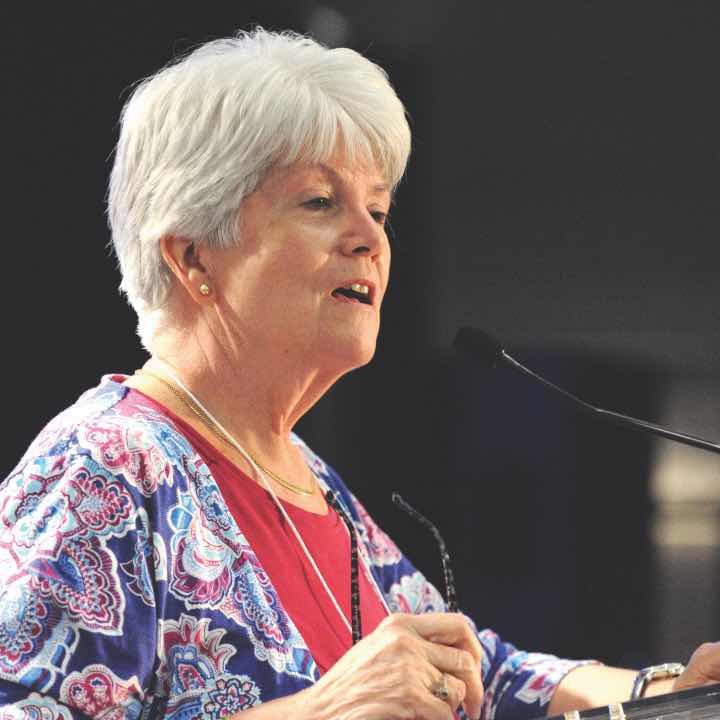
Nancy Farrell,
Perspicacity Award
Perspicacity is the quality of keen understanding, of uncommon insight into the world we live in and the issues at hand. Nancy Farrell has demonstrated this insight and more on advocacy and policy at all levels of government to promote suicide prevention and mental health, putting her heart and soul into preventing suicide in her community and across the country. In her many years with AFSP, Nancy’s leadership impact has been immeasurable. Her vision, guidance, and perspicacity have been invaluable, and she has set the example for the decades to come.
Our research serves as the catalyst for the Project 2025 initiative, which has the bold goal of reducing the annual suicide rate in the U.S. 20% by 2025.
By partnering with organizations in communities across the U.S. to deliver evidence-informed programs, policies and interventions, we know we can and will save lives. This year we entered a new phase of the initiative, including the debut of a new interactive website and the announcement of several exciting partnerships, each aligned with the four critical areas that have been identified to save the most lives in the shortest amount of time: firearms, healthcare systems, emergency departments and correctional institutions.
51% of all suicides in the U.S. are by firearm, which is why we’ve partnered with the National Shooting Sports Foundation to help distribute suicide prevention materials to its national network of retailers and ranges. Our chapters have presented our firearms-specific suicide prevention education program in their communities over 100 times since its development. We’re also partnering with Everytown for Gun Safety and The Well-Armed Woman to promote suicide prevention in relation to firearms.
39% of people who die by suicide visit an ER in the year prior. Together with the American College of Emergency Physicians, we’ve developed ICAR2E, an online suicide prevention tool designed to assist with assessment and treatment of at-risk patients in emergency care settings.
Up to 45% of people who die by suicide visit their primary care physician in the month prior. We’ve collaborated with SafeSide Prevention to provide video- based suicide prevention training for doctors across the country.
Suicide is the leading cause of death in jails, and has increased 30% in prisons the past several years. Our partnership with the National Commission on Correctional Health Care allows us to offer the tools and guidance needed in correctional facilities.


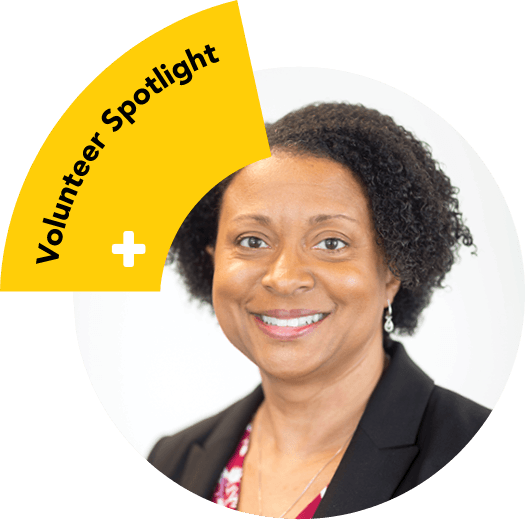
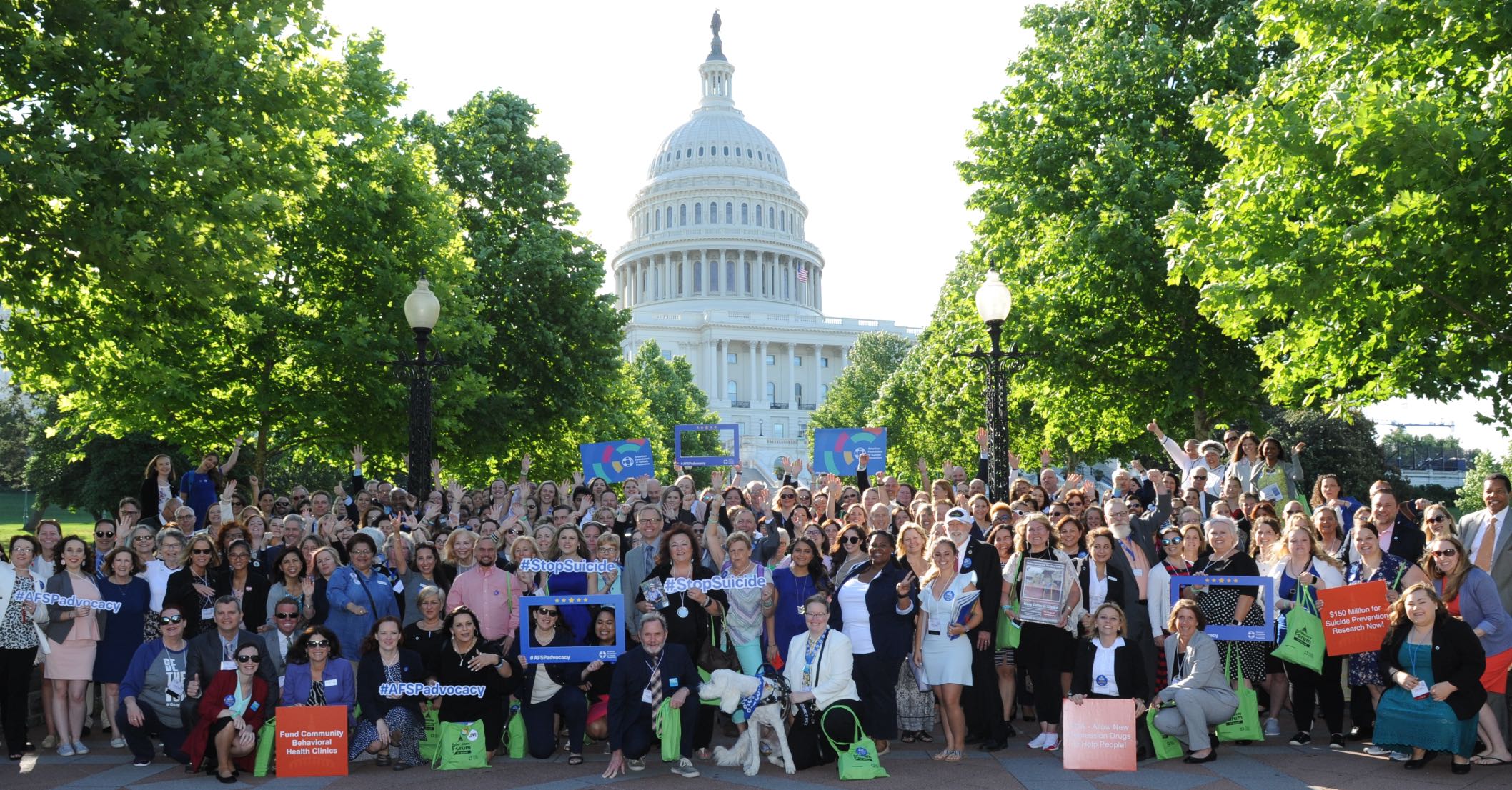
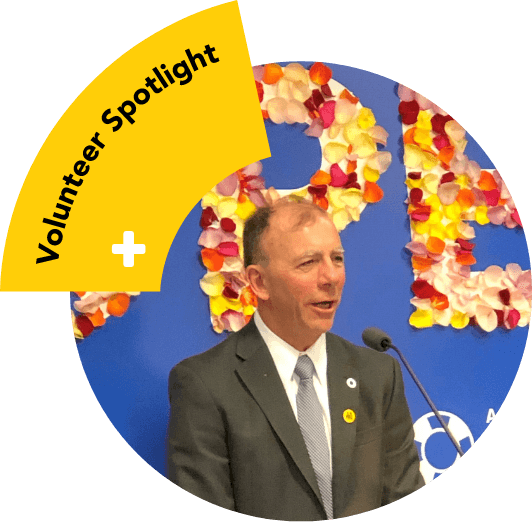
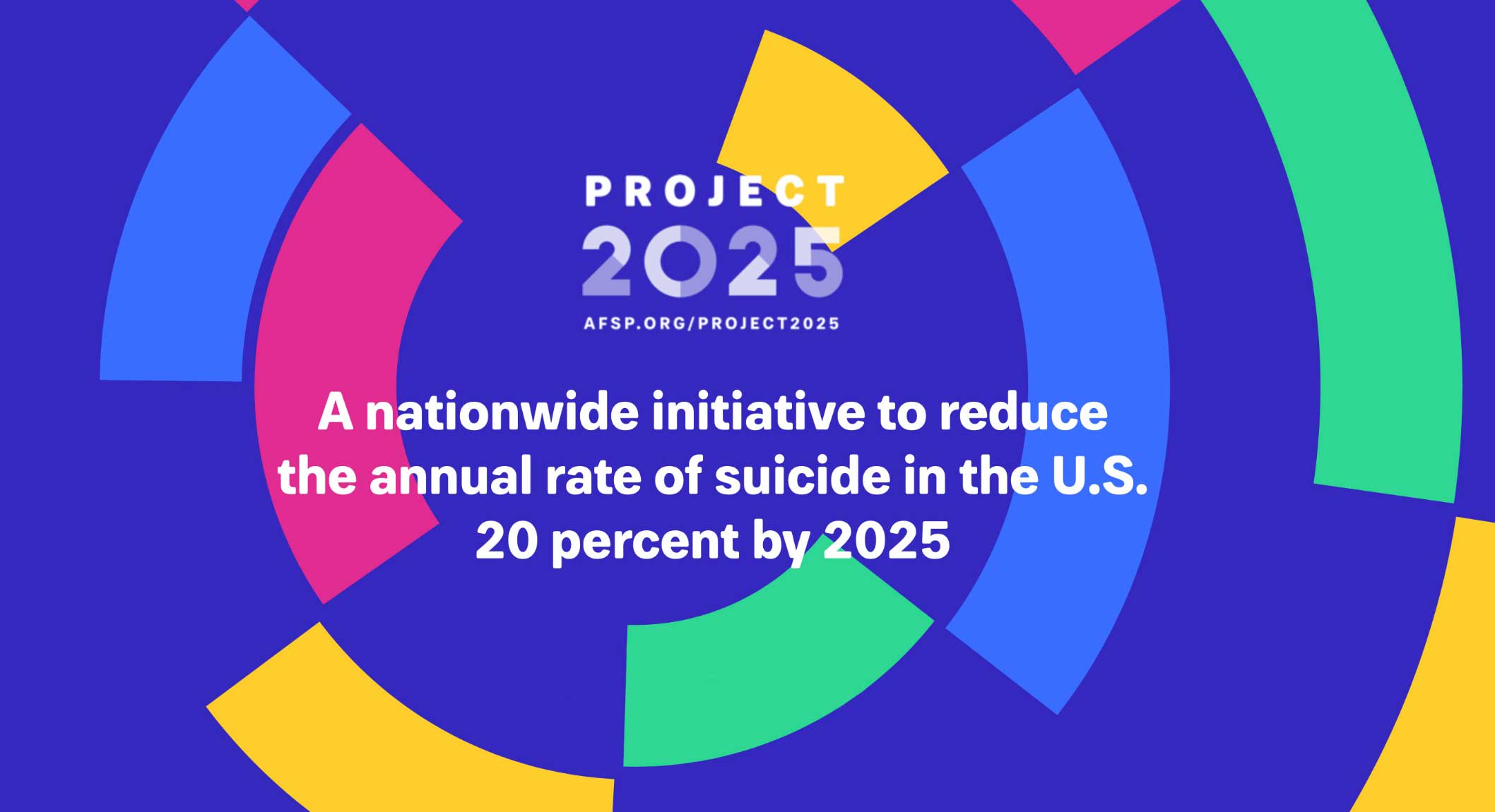
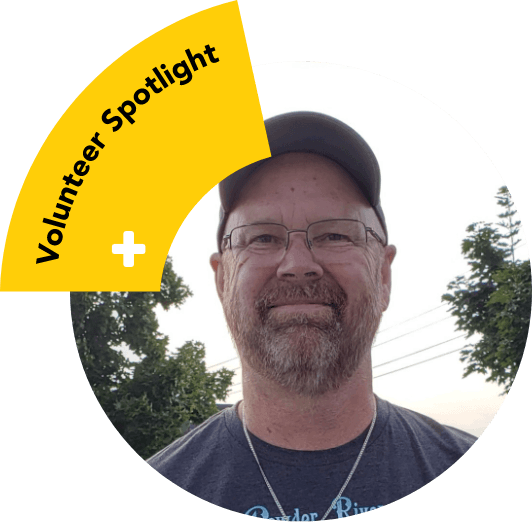

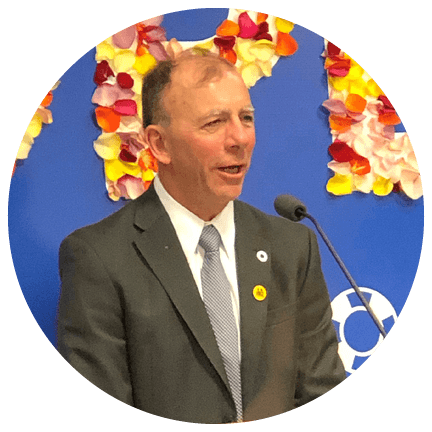
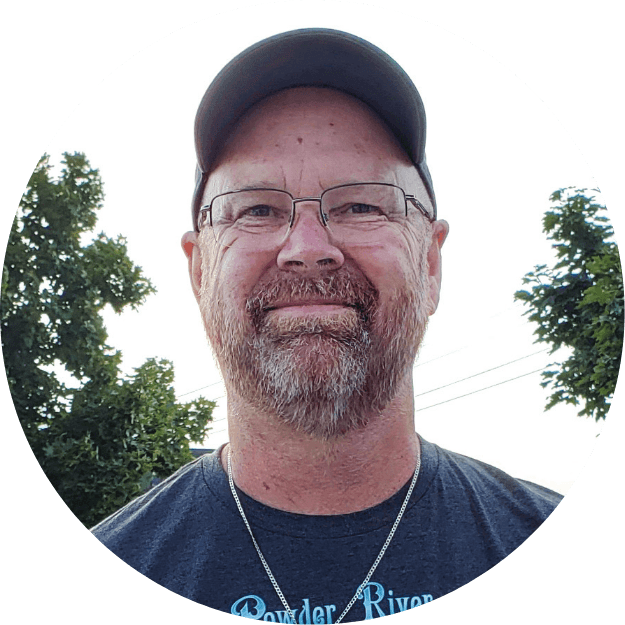
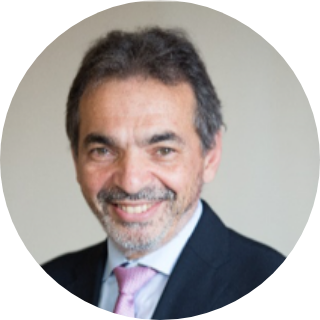
 Igor Galynker M.D., Ph.D.
Igor Galynker M.D., Ph.D.
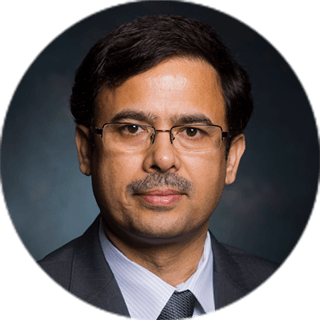 Yogesh Dwivedi, Ph.D.
Yogesh Dwivedi, Ph.D.
 Faith Dickerson, Ph.D., M.P.H.
Faith Dickerson, Ph.D., M.P.H.
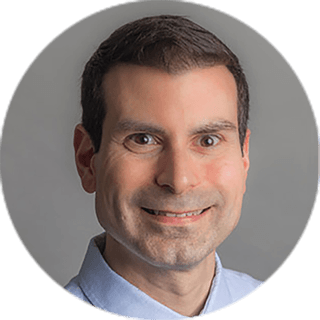 Brandon Gaudiano, Ph.D.
Brandon Gaudiano, Ph.D.
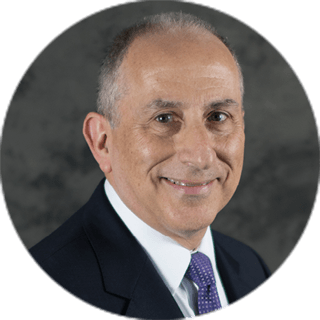 Paul Lipkin, M.D.
Paul Lipkin, M.D.
 Anna Mueller, Ph.D.
Anna Mueller, Ph.D.
 Carolyn Rodriguez, M.D., Ph.D.
Carolyn Rodriguez, M.D., Ph.D.
 Heather Schatten, Ph.D.
Heather Schatten, Ph.D.
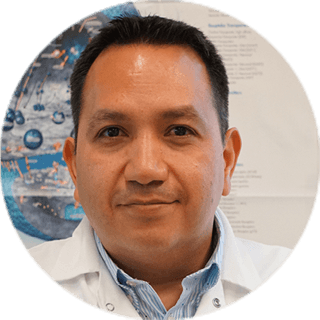 Adolfo Sequeira, Ph.D.
Adolfo Sequeira, Ph.D.
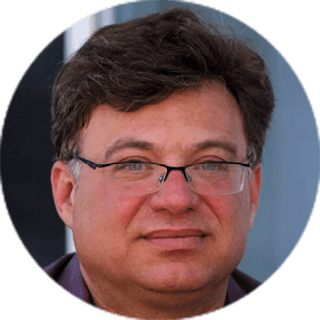 Golan Shahar, Ph.D.
Golan Shahar, Ph.D.
 Etienne Sibille, Ph.D.
Etienne Sibille, Ph.D.
 David Studdert, Sc.D., M.P.H.
David Studdert, Sc.D., M.P.H.
 Iga Tymofiyeva, Ph.D.
Iga Tymofiyeva, Ph.D.
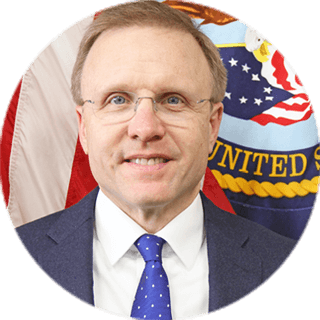 Bradley Watts, M.D., M.P.H.
Bradley Watts, M.D., M.P.H.
 Emma Johnson, Ph.D.
Emma Johnson, Ph.D.
 Mary LeCloux, Ph.D.
Mary LeCloux, Ph.D.
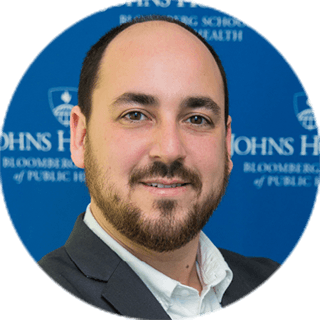 Paul Nestadt, M.D.
Paul Nestadt, M.D.
 Caroline Oppenheimer, Ph.D.
Caroline Oppenheimer, Ph.D.
 Emily Pisetsky, Ph.D.
Emily Pisetsky, Ph.D.
 Emily DiBlasi, Ph.D.
Emily DiBlasi, Ph.D.
 Danielle Steelesmith Ph.D., M.S.W.
Danielle Steelesmith Ph.D., M.S.W.
 Sujan Chandra Das, Ph.D.
Sujan Chandra Das, Ph.D.
 Alysa Doyle, Ph.D.
Alysa Doyle, Ph.D.